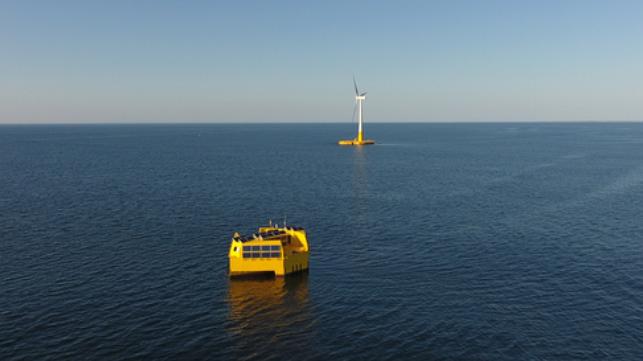DNV to Study Safety and Risks of Offshore Green Hydrogen Production

The concept of green hydrogen production linked to offshore wind farms is going to take a major step forward as DNV launches an effort to identify and analyze the main environmental, safety, and operational risks associated with one of the world’s first offshore green hydrogen production projects. In its role as an independent energy expert and assurance provider, DNV will lead the independent research into the safety and operational risks for the proposed facility at the SEM-REV offshore test site located off the north-western coast of France.
The test site, which is located approximately 12 nautical miles off the coast of France near Saint-Nazaire, was first designed in 2011 with a prototype floating wind turbine first installed in 2018 followed by a wave energy converter prototype in 2019. Lhyfe, a producer and supplier of green and renewable hydrogen for transport and industry, and Centrale Nantes, a French School of engineering and research center, manage the SEM-REV offshore test site.
Expanding beyond the testing of power generation from floating offshore wind and wave energy, Lhyfe and Centrale Nantes announced the goal to make offshore renewable hydrogen a reality by demonstrating the reliability of an offshore electrolyze. The offshore electrolyze will be installed on a floating platform from GEPS Techno, an engineering company developing offshore renewable energy technology, and then be connected to the various sources of marine renewable energy available on the offshore test site, including the Floatgen floating wind turbine. The green hydrogen-generating system is intended to be powered by electricity from a floating wind turbine, with a target start-up date in 2022.
“This is potentially a watershed project, one we are excited to be supporting during the FEED stage,” says Santiago Blanco, Executive Vice-President and Regional Director Southern Europe, MEA and LATAM, Energy Systems at DNV. “Proving the safety of such activities, particularly with new technologies, to gain acceptance and move them closer to adoption, is vital for the industry and stakeholders. We believe green hydrogen at-scale is the ultimate destination for the future of energy storage.”

that matters most
Get the latest maritime news delivered to your inbox daily.
As part of the design of the new facility, DNV’s will undertake workshops and technical sessions to identify and analyze the main environmental, safety, and operational risks associated with the project. Risks that will be investigated by DNV include the floating barge, fuel cells, and hydrogen production. A regulations and standards review will also be included as part of the study. Centrale Nantes is also making its research facilities available and providing support for the various regulatory, experimental, and logistical phases.
